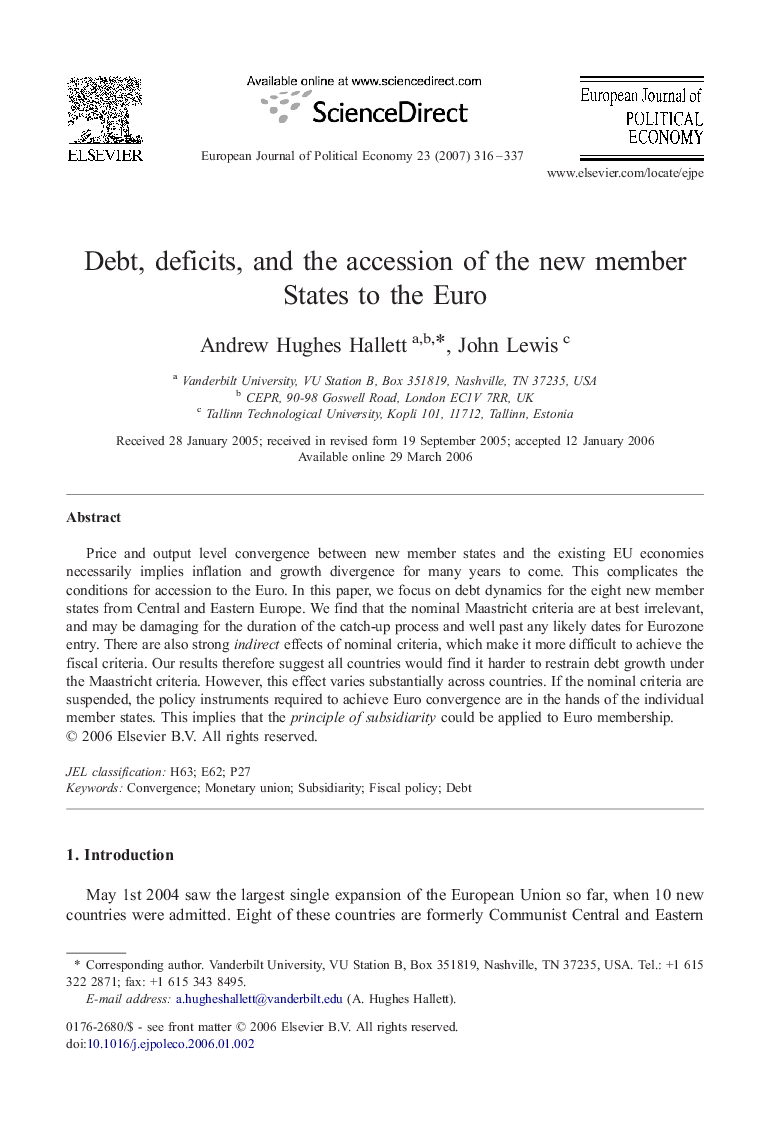| Article ID | Journal | Published Year | Pages | File Type |
|---|---|---|---|---|
| 5068384 | European Journal of Political Economy | 2007 | 22 Pages |
Price and output level convergence between new member states and the existing EU economies necessarily implies inflation and growth divergence for many years to come. This complicates the conditions for accession to the Euro. In this paper, we focus on debt dynamics for the eight new member states from Central and Eastern Europe. We find that the nominal Maastricht criteria are at best irrelevant, and may be damaging for the duration of the catch-up process and well past any likely dates for Eurozone entry. There are also strong indirect effects of nominal criteria, which make it more difficult to achieve the fiscal criteria. Our results therefore suggest all countries would find it harder to restrain debt growth under the Maastricht criteria. However, this effect varies substantially across countries. If the nominal criteria are suspended, the policy instruments required to achieve Euro convergence are in the hands of the individual member states. This implies that the principle of subsidiarity could be applied to Euro membership.
